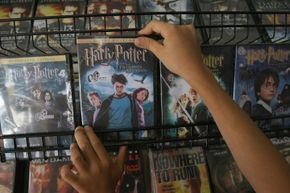In recent years, it seems the release of every new blockbuster is accompanied by headlines that claim the film had the "biggest opening weekend ever," shattering box office records that may have been set just weeks -- or days -- earlier. While a movie's first week at the box office has always been important in terms of marketing and drawing interest in the film, it's become even more crucial as studios release greater numbers of films, effectively shortening the window that a movie has to make money in the theater.
Today, most movies make a whopping one-third of their entire domestic box office gross during opening weekend [source: Eller and Friedman]. A bad opening weekend could mean a film barely breaks even or even loses money for the studio -- not a good scenario for moviemakers.
Advertisement
In May 2002, "Spider-Man" changed the opening weekend box office forever when it became the first film in history to earn more than $100 million during its first weekend of release [source: The History Channel]. Since then, more than two dozen films have gone on to top the $100 million mark, establishing this astronomical figure as the new benchmark for box office success [source: Box Office Mojo]. Major films that fail to hit $100 million are often dismissed as disappointments or failures, or at best, deemed modest or respectable in terms of returns -- not what you want to hear when you've spent a few hundred million to make a film.
In 2012, Marvel sent the box office bar soaring even higher when its film "The Avengers" picked up more than $200 million in a single weekend in early May [source: Box Office Mojo]. The ever-increasing marker for opening weekend success puts even greater pressure on studios and movies to prove themselves right out of the gate.
Curious about how the opening weekend can make or break a film? Read on to find out how just three days can make the difference between earning millions or losing it all.
Advertisement





